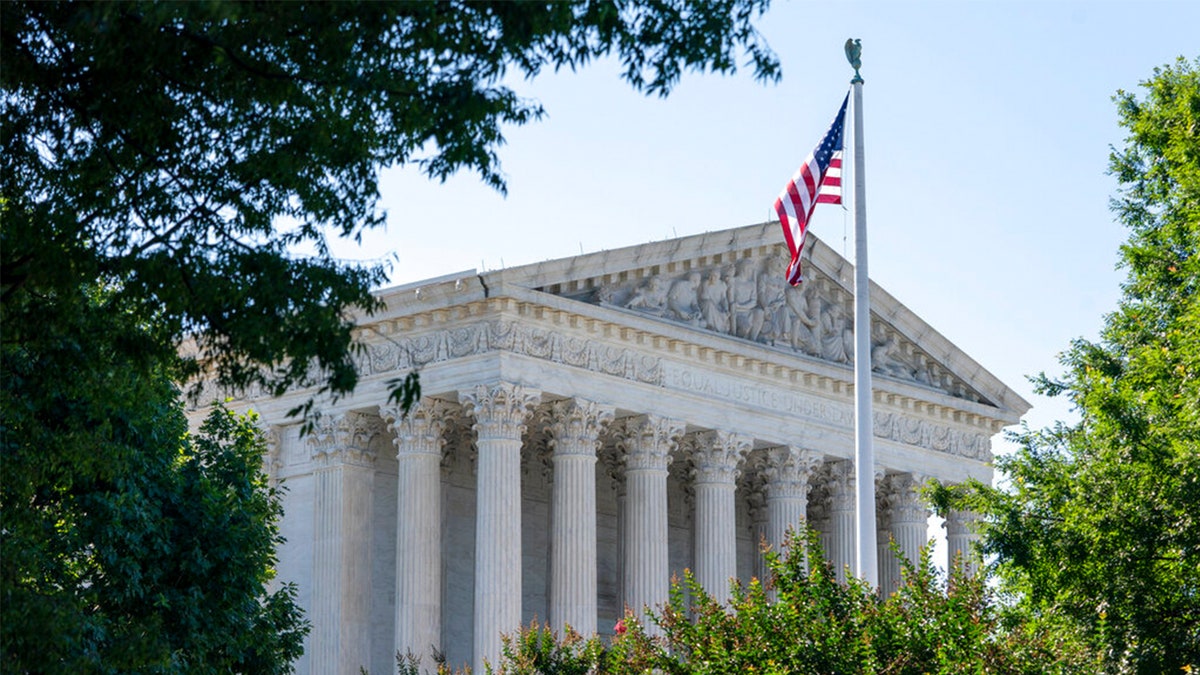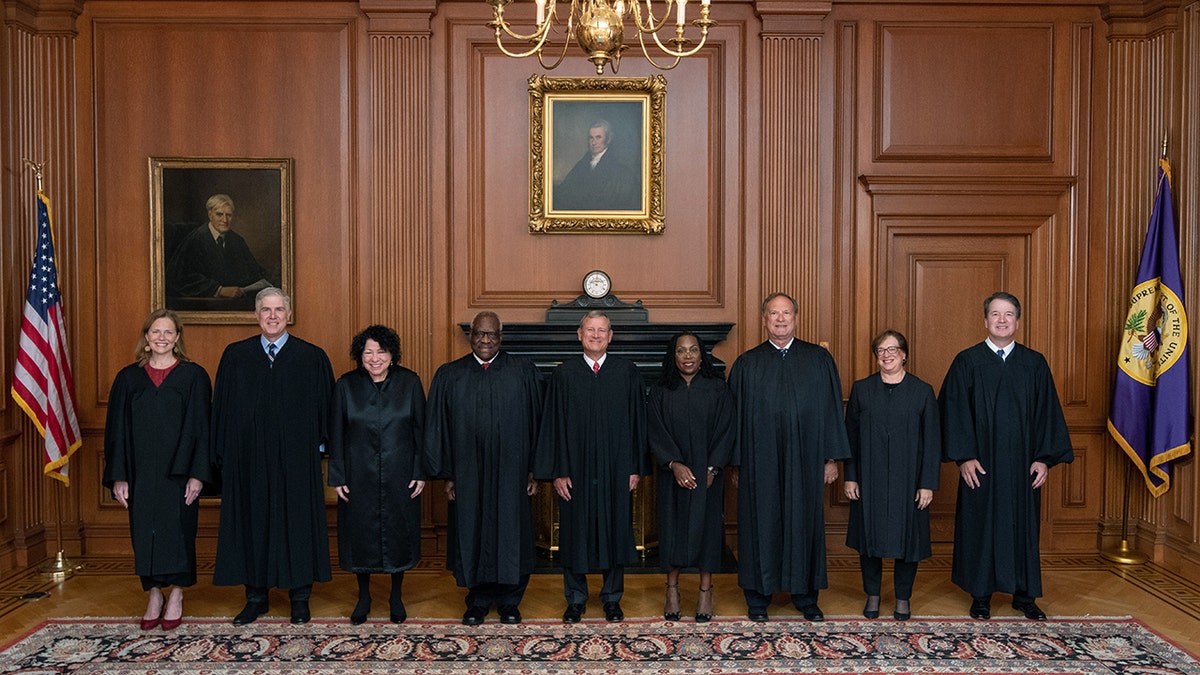Supreme Court sides with Biden admin on key deportation policy
Fox News anchor Shannon Bream reports on the Supreme Court ruling 8-1 that Texas and Louisiana did not have standing to sue over a Biden administration border law.
The Supreme Court on Friday handed the Biden administration a major victory on a key immigration case — ruling that GOP-led states do not have standing to challenge a policy narrowing federal immigration enforcement.
The justices, in an 8-1 ruling in U.S. v Texas, found that Republican states did not have standing to challenge a narrowing of Immigration and Customs Enforcement (ICE) priorities for arrests and deportations of illegal immigrants.
"In sum, the States have brought an extraordinarily unusual lawsuit. They want a federal court to order the Executive Branch to alter its arrest policies so as to make more arrests. Federal courts have not traditionally entertained that kind of lawsuit; indeed, the States cite no precedent for a lawsuit like this," the opinion, written by Justice Brett Kavanaugh, said.
Justice Samuel Alito was the sole dissenting justice.

The Supreme Court in Washington, D.C., is seen on June 29, 2022. (AP Photo/Jacquelyn Martin)
The case involved the issuing of new enforcement guidelines by the Department of Homeland Security (DHS). After initially attempting to impose a 30-day moratorium on all ICE deportations, the department issued guidance that restricted ICE agents to targeting three types of illegal immigrants for arrest and deportation: recent border crossers; threats to public safety; and national security threats.
"The fact an individual is a removable noncitizen therefore should not alone be the basis of an enforcement action against them," DHS Secretary Alejandro Mayorkas said in the memo. "We will use our discretion and focus our enforcement resources in a more targeted way. Justice and our country's well-being require it."
The department said it was the most efficient use of limited resources to protect the American people, but critics saw it as part of a broader rolling back of enforcement and border security. The imposition of those guidelines coincided with a sharp drop in ICE deportations. In FY 2021, which included the final months of the Trump administration, ICE arrested 74,082 noncitizens and deported 59,011. Of the 74,082 arrests between October 2020 and October 2021, only 47,755 took place after Feb. 18 when the new priorities were implemented. Of removals, just 28,677 of the 59,011 deportations took place after Feb. 18.
NEARLY 17 MILLION ILLEGAL IMMIGRANTS LIVING IN US, 16% INCREASE SINCE 2021: ANALYSIS
READ THE SUPREME COURT OPINION - APP USERS, CLICK HERE:
Texas and Louisiana challenged the legality of the guidelines, arguing that the policy breached the Administrative Procedure Act and that they had standing because their states would incur greater law enforcement costs and a significant impact on social services due to the increase in illegal immigration that resulted. A district court found that the states did have standing and blocked the implementation of the policy.
MIGRANT NUMBERS EXCEEDED 200,000 ENCOUNTERS AGAIN IN MAY AS TITLE 42 EXPIRED
However, the high court disagreed: "The threshold question is whether the States have standing under Article III to maintain this suit. The answer is no." The opinion said that while monetary costs are an injury, the injury to allow standing must also be "legally and judicially cognizable."
It also clarified that it was not stating that states may never have standing over an alleged failure to make more arrests or prosecutions — including if the Executive Branch "wholly abandoned" its responsibilities in this regard — but not in this case.

On June 30, 2022, Justice Jackson took the oaths of office to become the 104th Associate Justice of the Supreme Court of the United States. (Collection of the Supreme Court of the United States via Getty Images)
CLICK HERE TO GET THE FOX NEWS APP
Justices Neil Gorsuch, Amy Coney Barrett and Clarence Thomas concurred in the judgment, but said they "diagnose the jurisdictional defect differently… the problem here is redressability." They say that the states lack standing "because federal courts do not have authority to redress their injuries."
Justice Alito, in his dissent, says that the majority "brushes aside a major precedent that directly controls the standing question, refuses to apply our established test for standing, disregards factual findings made by the District Court after a trial, and holds that the only limit on the power of a President to disobey a law like the important provision at issue is Congress’s power to employ the weapons of inter-branch warfare — withholding funds, impeachment and removal, etc."
Alito notes that Congress passed legislation in the 1990s that commands the detention and removal of illegal immigrants who have been convicted of certain crimes.
"The Secretary of Homeland Security, however, has instructed his agents to disobey this legislative command and instead follow a different policy that is more to his liking. And the Court now says that no party injured by this policy is allowed to challenge it in court," he says, accusing his colleagues of "a deeply and dangerously" flawed interpretation of executive authority.
In a statement, Mayorkas applauded the ruling and said the department "looks forward to reinstituting these Guidelines, which had been effectively applied by [ICE] officers to focus limited resources and enforcement actions on those who pose a threat to our national security, public safety, and border security."
"The Guidelines enable DHS to most effectively accomplish its law enforcement mission with the authorities and resources provided by Congress," he said.
The case is one of a number of immigration challenges that have faced the Court, including recent challenges to end the Title 42 public health order. It is likely to eventually consider a challenge to a "Parole with Conditions" policy, which saw migrants released without court dates due to overcrowding and was implemented as Title 42 ended in May. The policy was blocked by a federal judge just days later.















































